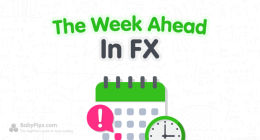The supreme court’s new judgment has exposed the gulf between labour regulation and the gig economy – and shown where justice must lie
It is difficult to think of ways in which Friday’s supreme court ruling on the employment status of Uber drivers could have been more emphatic or conclusive than it was. The six justices agreed unanimously to uphold a groundbreaking employment tribunal finding made against the company in 2016. Uber drivers, the court confirmed, are not self-employed – as Uber argued in a succession of appeals – but should be treated as workers, with rights to be paid at least the national minimum wage, to holiday pay and other benefits.
Uber’s claim that it was simply an intermediary between its drivers and passengers was comprehensively dismissed. Every aspect of the company’s attempt to disclaim employment responsibilities was forensically unpicked. The court said it was Uber, not the drivers, who set the fares, which could not be exceeded. Contract terms were set by Uber too, with drivers allowed no say. Once they logged on to the app, it was Uber, not the drivers, that set the rules about accepting requests for rides and monitoring customer satisfaction. The net effect, said the court in a chilling phrase, is that drivers “are in a position of subordination and dependency in relation to Uber”.






